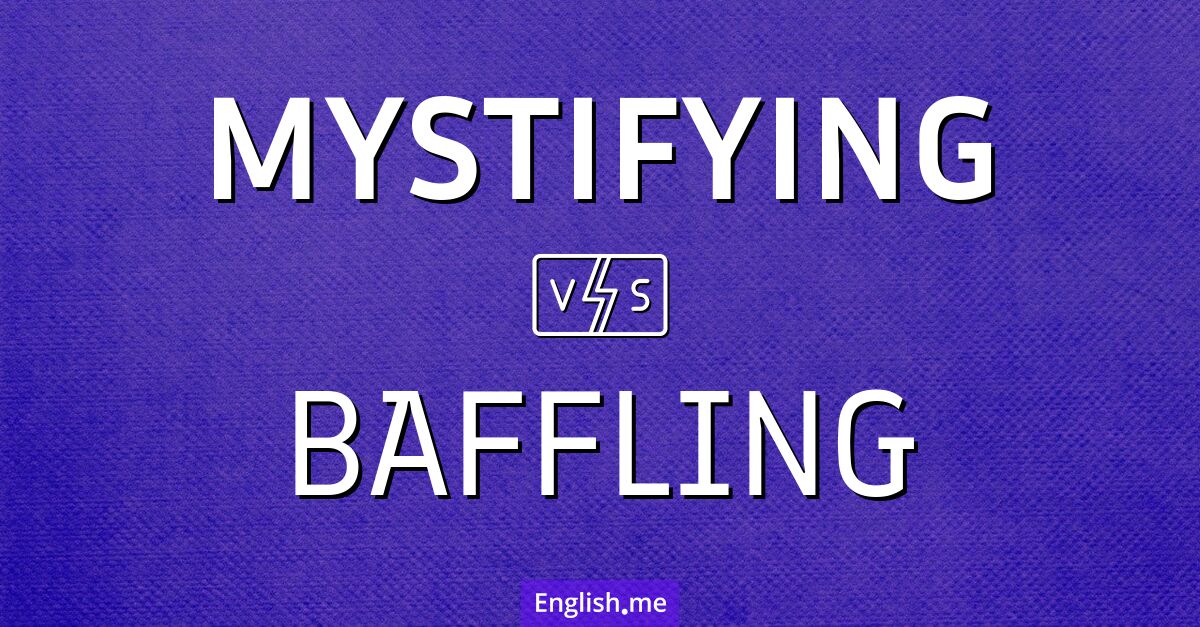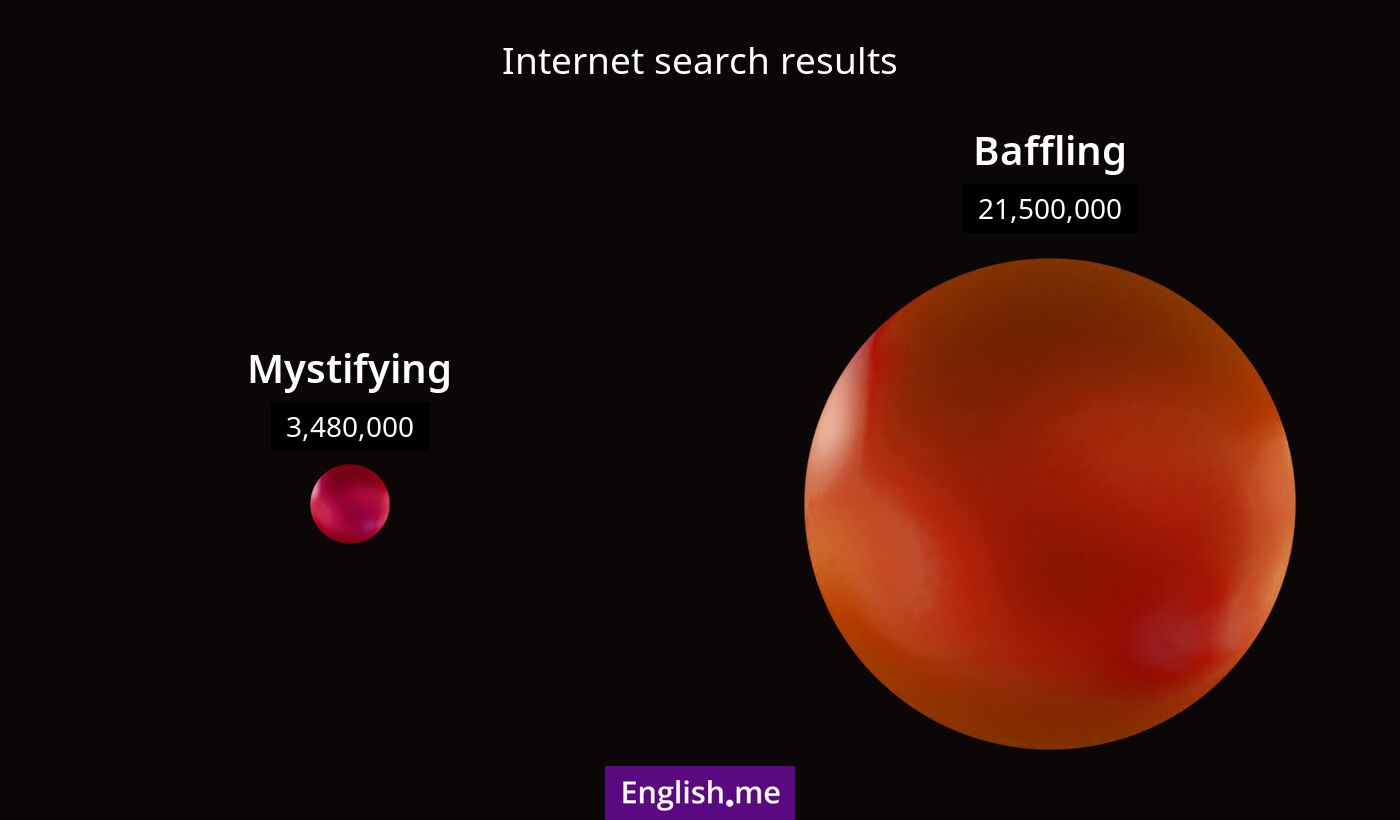Decoding confusion: "mystifying" vs. "baffling"
Reviewed and edited by  Lloyd Cooper 16/10/2024, 06:46
Lloyd Cooper 16/10/2024, 06:46
English.me team member

 What is similar?
What is similar?
Both "mystifying" and "baffling" describe situations or things that are difficult to understand or explain. They are often used interchangeably to convey a sense of confusion or puzzlement.
 What is different?
What is different?
"Mystifying" often suggests an element of mystery or an enigmatic quality, sometimes with a connotation of intrigue or wonder. "Baffling" emphasizes the inability to understand something, often highlighting complexity or unexpectedness, but typically without the allure of intrigue.
 Which one is more common?
Which one is more common?

 Examples of usage
Examples of usage
Mystifying- The magician's tricks were truly mystifying, leaving the audience in awe.
- The mysterious disappearance of the ancient artifact remains mystifying to historians.
- Her sudden change in behavior was mystifying to everyone who knew her.
- The math problem was so complex that it was completely baffling to the students.
- It's baffling to think how they managed to escape without a trace.
- The instructions were so poorly written that they were utterly baffling.

 English
English español
español française
française italiano
italiano deutsche
deutsche 日本語
日本語 polski
polski česky
česky svenska
svenska Türkçe
Türkçe Nederlands
Nederlands